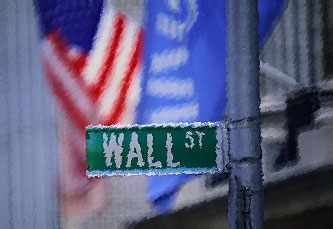 And now for some contradictory news about Wall Street earnings:
And now for some contradictory news about Wall Street earnings:
With the country’s major banks due Wednesday to start reporting third-quarter earnings, a new pessimism is taking hold on Wall Street based on the growing belief that the economy will remain weak for some time, limiting the industry’s ability to make money….Wall Street analysts who follow their own industry have recently slashed earnings estimates for a number of big players. Several firms have quietly fired staff, and many more layoffs are expected by early next year. There are even predictions of a severe drop in Wall Street’s notoriously generous compensation.
“We’re going to see a larger increase in unemployment in the financial services than anyone had expected,” said Steven Eckhaus, a lawyer who advises banks on employment matters.
So are Wall Street traders breaking out the champagne buckets (yesterday’s news) or preparing to sell their backup vacation homes (today’s news)? Hard to say. But this report does suggest one reason that it’s going to be hard to tell if financial reform is working. I’ve suggested before that overall industry profitability is a key metric to watch because a safer industry is inherently a less profitable industry. However, the opposite isn’t mathematically equivalent: a less profitable industry might be a safer industry but it might not be. It might be less profitable just because the economy is sucking.
So: if industry profits stay high, that’s definitely a bad sign. But if industry profits fall, it’s an ambiguous sign. Wait and see.

















